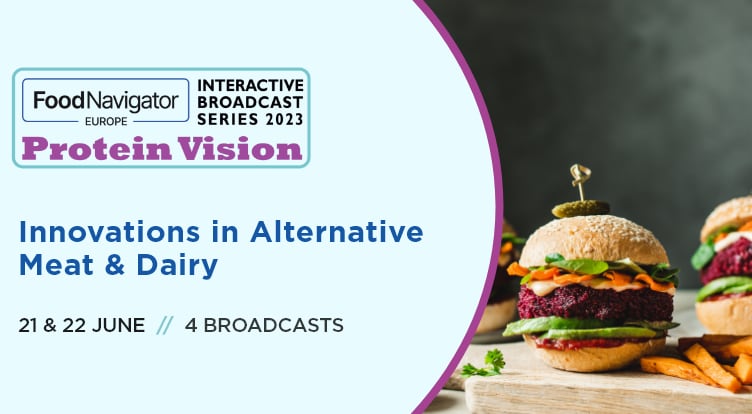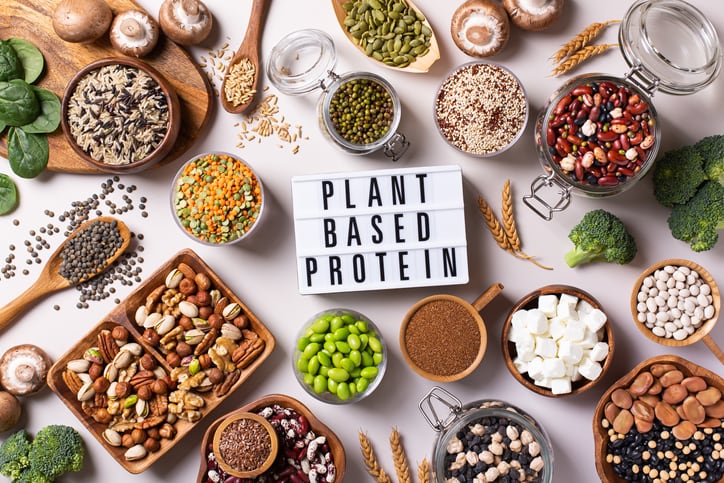A quick stroll down the plant-based supermarket aisle reveals a full range of meat-free burgers, sausages, and even bacon rashers. Alternative seafood options, on the other hand, are few and far between.
But the tide on plant-based seafood is turning. According to the Good Food Institute (GFI), last year the US market observed both dollar and unit sales (up 53%) growth for plant-based seafood, and stakeholders expend this trend to continue.
To truly hit the mainstream, however, plant-based seafood has to lift its game, suggests Kianti Figler, founder and CEO of Dutch start-up Upstream Foods. “It’s fair to say that the quality of products is not there, not yet,” she told delegates at F&A Next, an event hosted by Rabobank, Wageningen University & Research, Anterra Capital and StartLife, last week in the Netherlands.
The main reasons consumers would choose plant-based seafood is flavour (78%), according to TURF (total unduplicated reach and frequency) analyses, followed by its potential to reduce overfishing (7%), being rich in Omega 3 (3%), not containing any bones (1%) and its impact on plastic waste reduction (1%).
GFI believes that once consumers have a positive impression of alternative seafood flavour, messaging focused on these other benefits are likely to make products more appealing to consumers. Figler agrees: “We should be focusing on taste, and improving that to drive innovation.”
Improving taste with fat
For Upstream Foods’ CEO, taste and fat are interlinked. “When we’re talking about taste, we’re talking about fat,” she told delegates at the event. “To take plant-based seafood to the next level, we need next level fat.”
The start-up’s solution is founded in cellular agriculture: Upstream Foods is developing cultivated fish fat for the plant-based seafood market. In essence, the company takes cells from salmon, turns it into a proprietary cell line, cultivates the cells in a bioreactor, and then in partnership with an industry player, combines the fat with a plant-based matrix.
“We can create a synergy between these two ingredients and create quality products that taste like seafood, have all of the health benefits, but are also affordable for consumers.”
The company is currently optimising its salmon cell line and establishing its process at lab-scale. Looking to the future, Upstream Foods predicts the main challenge in increasing scale will be reducing cost of production.
“For everybody in the industry, [this] is the hardest thing to do,” Figler told delegates. “Everything has been designed for the pharma industry, and traditionally there have not been a lot of incentives to drive the cost [of ingredients] down.
“Making this entire process cost efficient is, I think, the biggest challenge we’re all facing.”
‘Regrettably, first market will not be Europe’
Upstream Foods has already developed a proof of concept with ‘global plant-based seafood players’.
After its next round of fundraising (Upstream Foods is looking to raise €3m in seed funding), the start-up plans to scale its process first to 30L, and then onto 100L scale. Once that milestone is achieved, Upstream Foods will further increase its scale, and file for regulatory approval in the US. The company aspires to be on the market four years from now.
“I would love to go to market in the EU first, and I think consumers here are ready for it,” said Figler. However, the CEO is concerned that submitting a Novel Foods application to the European Food Safety Authority’s (EFSA) might be too time consuming. No cell-based meat or fat company has filed a Novel Foods submission to EFSA, and once they do, it is predicted to take a minimum of nine months, and even up to 18 months or longer to get approval.
“Right now, we’re still struggling to host [cell-based fat] tastings, so I don’t see going through EFSA as a very viable path for a start-up. It’s just going to take a bit too long. So [the EU] is not going to be our first market, unfortunately…”
Keen to learn more about innovations in alternative meat and dairy? Tune in to our free-to-attend broadcast event Protein Vision, which will stream across four sessions on 21-22 June 2023.
Streaming across four sessions on 21-22 June 2023, Protein Vision will profile the technology, ingredients and culinary science powering the next generation of meat- and dairy-free innovation. We’ll be asking how the sector can rebuild momentum and truly take a bit out of conventional meat and dairy sales.
REGISTER FOR FREE HERE or check out the last PROGRAMME and SPEAKER UPDATES HERE.





